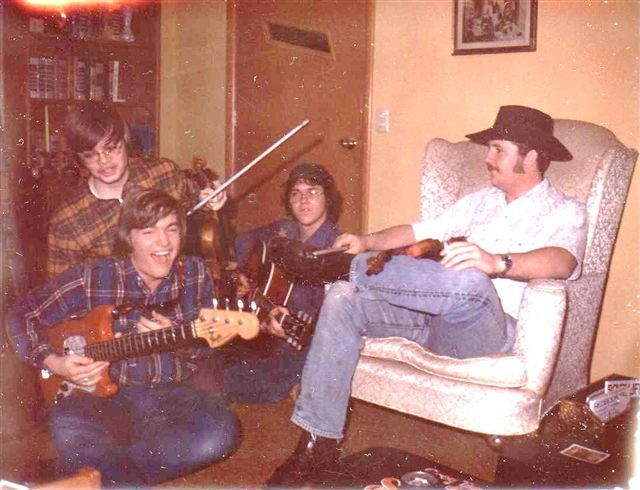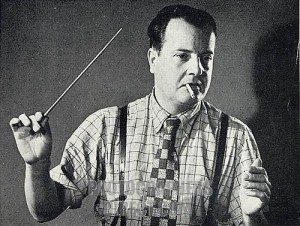Anthony Powell writes:
Just as most of the world find it on the whole unusual that anyone should be professionally occupied with the arts, Moreland could never get used to the fact that most people–in this particular case, Templer–lead lives in which the arts play no part whatsoever. That is perhaps an exaggeration of Moreland’s attitude. All the same, he always found difficulty in accustoming himself to complete aesthetic indifference.
 I’ve never had any trouble getting used to that fundamental reality of human life, for the very good reason that no one else in my extended family has ever been “professionally occupied with the arts.” Except for my mother’s father, who played the banjo for pleasure, I was the first one to play a musical instrument other than casually, as well as the first, so far as I know, to go to a classical concert or an art museum, or attend a professional production of a play.
I’ve never had any trouble getting used to that fundamental reality of human life, for the very good reason that no one else in my extended family has ever been “professionally occupied with the arts.” Except for my mother’s father, who played the banjo for pleasure, I was the first one to play a musical instrument other than casually, as well as the first, so far as I know, to go to a classical concert or an art museum, or attend a professional production of a play.
You’d think that my relatives would have been astonished by my decision to become an artist, but the truth is that they seem to have taken little note of it. I’d always been a bit odd, and my burgeoning passion for music was nothing more than further proof of that longstanding oddity. They loved me, of course–that was a given–but except for my parents, they weren’t especially interested in me. No doubt that’s why I soon fell into the habit of keeping my artistic side to myself.
It wasn’t until I left Smalltown, U.S.A., and went away to school that I started to meet large numbers of people who were like me. It stood to reason that from then on, they would become my best friends. A musician’s life tends to be isolating, in part because it’s difficult to explain to laymen, and by the time I graduated from college, I was so deeply involved in making and writing about music that I had scarcely any intimate friends who weren’t musicians themselves.
That changed when I left Kansas City, first to study psychology at the University of Illinois and, a bit later, to become a writer and editor in New York. Though I continued to befriend musicians on occasion, I thereafter spent most of my time around people who did other things for a living: scholars, writers, editors, dancers, actors, even the occasional executive. I still remember how surprising it was when I found myself romantically attracted for the first time to a woman who wasn’t a musician. Today I can count on the fingers of one hand the professional musicians with whom I claim anything like intimate acquaintance.
 It happens that Hugh Moreland, the character to whom Anthony Powell refers in the excerpt from A Dance to the Music of Time reprinted at the top of this posting, is a fictionalized version of Constant Lambert, the British composer-conductor-critic about whom I’ve written here and elsewhere. Powell and Lambert were close friends in real life, which is all the more striking in light of the fact that Powell himself had no serious interest in music. (It is for this reason amusing to listen to his 1976 appearance on the BBC’s Desert Island Discs program, in which he talks about his friendship with Lambert.)
It happens that Hugh Moreland, the character to whom Anthony Powell refers in the excerpt from A Dance to the Music of Time reprinted at the top of this posting, is a fictionalized version of Constant Lambert, the British composer-conductor-critic about whom I’ve written here and elsewhere. Powell and Lambert were close friends in real life, which is all the more striking in light of the fact that Powell himself had no serious interest in music. (It is for this reason amusing to listen to his 1976 appearance on the BBC’s Desert Island Discs program, in which he talks about his friendship with Lambert.)
That two such ill-sorted men should have become close is not nearly so surprising to me as it would have been when I was in my twenties. Lambert, after all, was a man of extraordinarily wide-ranging interests, enough so that he could easily have made a living as, say, a critic of dance or the visual arts. I suspect that this explains why he was so powerfully drawn to Powell. One of the reasons why I myself got out of music was because I realized that I cared about too many other things to lash myself permanently to the mast of its all-consuming demands.
I no longer think of myself as a musician–nor should I. Yet music continues to be embedded in my sense of self, so much so that I was taken aback by how comfortable I felt when I took part in rehearsing the three operas that I’ve written with Paul Moravec (who is, not at all surprisingly, my closest musician friend). It was as if I were paying a visit to a land from which I’d been exiled years before. The exile, to be sure, is final: I will never again be a musician, and I wouldn’t want to be. But I still know my way around that lost world, and if I don’t feel completely at home there anymore, I’m not so sure that I feel much more at home anywhere else.
* * *
Edith Sitwell and Constant Lambert perform excerpts from William Walton’s Façade in 1929, accompanied by an instrumental ensemble conducted by the composer:
